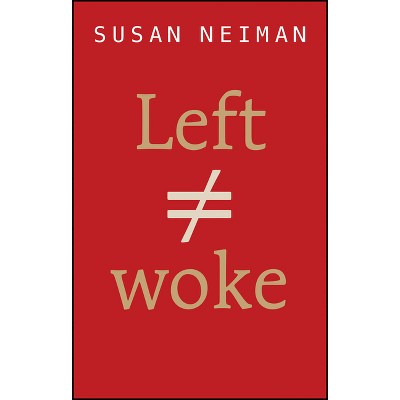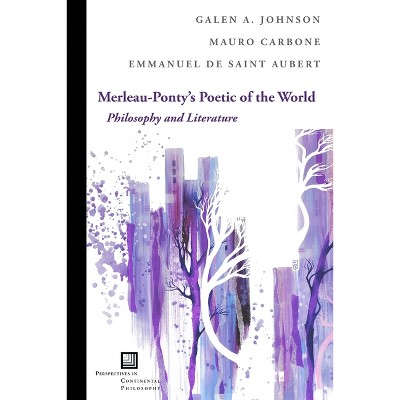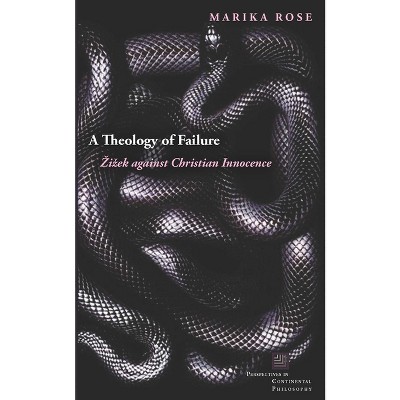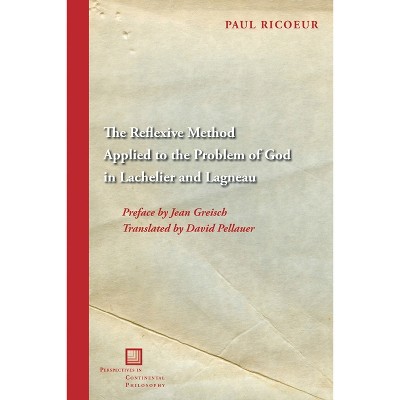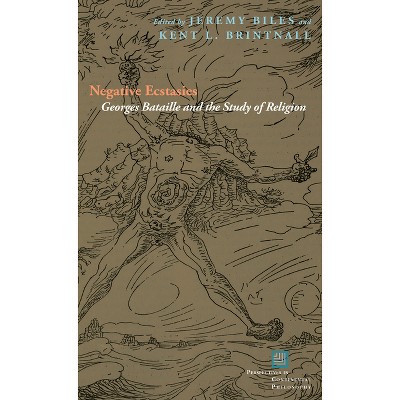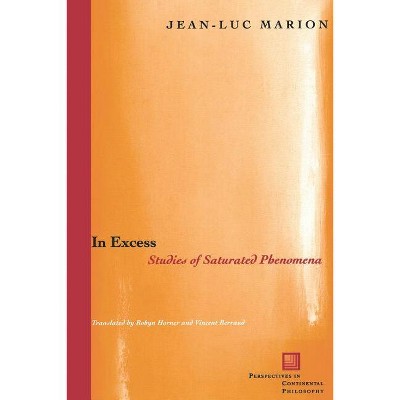The Guide to Gethsemane - (Perspectives in Continental Philosophy) by Emmanuel Falque (Paperback)

About this item
Highlights
- Anxiety, suffering and death are not simply the "ills" of our society, nor are they uniquely the product of a sick and sinful humanity.
- About the Author: Emmanuel Falque (Author) Emmanuel Falque is Honorary Dean of the Faculty of Philosophy at the Catholic University of Paris.
- 200 Pages
- Religion + Beliefs, Christian Theology
- Series Name: Perspectives in Continental Philosophy
Description
Book Synopsis
Anxiety, suffering and death are not simply the "ills" of our society, nor are they uniquely the product of a sick and sinful humanity. We must all some day confront them, and we continually face their implications long before we do. In that sense, the Garden of Gethsemane is not merely a garden "outside the walls" of Jerusalem but also the essential horizon for all of us, whether we are believers or not.
Emmanuel Falque explores, with no small measure of doubt, Heidegger's famous statement that by virtue of Christianity's claims of salvation and the afterlife, its believers cannot authentically experience anxiety in the face of death. In this theological development of the Passion, already widely debated upon its publication in French, Falque places a radical emphasis on the physicality and corporeality of Christ's suffering and death, marking the continuities between Christ's Passion and our own orientation to the mortality of our bodies. Beginning with an elaborate reading of the divine and human bodies whose suffering is masterfully depicted in the Isenheim Altarpiece, and written in the wake of the death of a close friend, Falques's study is both theologically rigorous and marked by deeply human concerns. Falque is at unusual pains to elaborate the question of death in terms not merely of faith, but of a "credible Christianity" that remains meaningful to non-Christians, holding, with Maurice Blondel, that "the important thing is not to address believers but to say something which counts in the eyes of unbelievers." His account is therefore as much a work of philosophy as of theology--and of philosophy explicated not through abstractions but through familiar and ordinary experience. Theology's task, for Falque, is to understand that human problems of the meaning of existence apply even to Christ, at least insofar as he lives in and shares our finitude. In Falque's remarkable account, Christ takes upon himself the burden of suffering finitude, so that he can undertake a passage through it, or a transformation of it. This book, a key text from one the most remarkable of a younger generation of philosophers and theologians, will be widely read and debated by all who hold that theology and philosophy has the most to offer when it eschews easy answers and takes seriously our most anguishing human experiences.From the Back Cover
"In this dramatic opening to his triptych on Christ's passion, Emmanuel Falque demonstrates--once again--his complete refusal to rest with easy answers. Christ, he argues, experiences anxiety and suffering that are just as real and confusing as that of any ordinary person. The result is that God does not suffer at some comfortable distance but right here in our midst. One can hardly read this book without being deeply moved."--Bruce Ellis Benson, author of Liturgy as a Way of Life
Anxiety, suffering and death are not simply the "ills" of our society, nor are they uniquely the product of a sick and sinful humanity. We must all some day confront them, and we continually face their implications long before we do. In that sense, the Garden of Gethsemane is not merely a garden "outside the walls" of Jerusalem but also the essential horizon for all of us, whether we are believers or not. Doubtful of Heidegger's famous statement that the notion of salvation renders Christians unable authentically to experience anxiety in the face of death, Falque explores the Passion with a radical emphasis on the physicality and corporeality of Christ's suffering and death, and on continuities with the mortality of our bodies. Written in the wake of the death of a close friend, Falques's study is both theologically rigorous and marked by deeply human concerns. Falque is at pains to elaborate the question of death in terms not of faith, but of a "credible Christianity" that remains meaningful to nonbelievers. His account is therefore as much a work of philosophy as of theology--and of philosophy explicated not through abstractions but through familiar and ordinary experience. Theology's task, for Falque, is to understand that human problems of the meaning of existence apply even to Christ, at least insofar as he lives in and shares our finitude. In Falque's remarkable account, Christ takes upon himself the burden of suffering finitude, so that he can undertake a passage through it, or a transformation of it. Emmanuel Falque is Honorary Dean of the Faculty of Philosophy at the Catholic University of Paris. George Hughes has served as Professor in the Faculty of Letters at the University of Tokyo.Review Quotes
In this dramatic opening to his triptych on Christ's passion, Emmanuel Falque demonstrates--once again--his complete refusal to rest with easy answers. Christ, he argues, experiences anxiety and suffering that are just as real and confusing as that of any ordinary person. The result is that God does not suffer at some comfortable distance but right here in our midst. One can hardly read this book without being deeply moved.---Bruce Ellis Benson, author of Liturgy as a Way of Life
Death is a problem. No, not a problem. The problem. So painful, so tragic, so crushing is the fate that awaits us that we mortals tend to ignore it altogether. An old professor of mine used to quip that philosophers make for bad party guests because we are always thinking about death. Yet, as Emmanuel Falque rightly points out in his provocative book The Guide to Gethsemane: Anxiety, Suffering, Death, all of that good philosophical thinking amounts to little more than a flight from death, an unwillingness to look the raw brutality of finitude in the eye.-- "Reading Religion"
What this book does with power and sensitivity is to call Christians to a reflection on the reality of suffering and death, and to point unbelievers to the resources at the heart of Christianity, coming from Christ himself, for speaking to the reality of suffering and death.-- "Modern Theology"
About the Author
Emmanuel Falque (Author)Emmanuel Falque is Honorary Dean of the Faculty of Philosophy at the Catholic University of Paris. His most recent book in English is The Wedding Feast of the Lamb: Eros, the Body, and the Eucharist. George Hughes (Translator)
George Hughes has served as Professor in the Faculty of Letters at the University of Tokyo.
